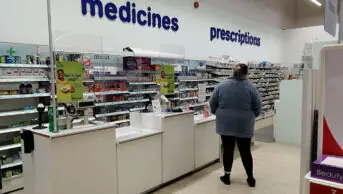
Shutterstock.com
More than a quarter (28%) of medicine product lines do not have a six-week stockpile of medicines in preparation for a no-deal Brexit, according to figures given to the National Audit Office (NAO) by the Department for Health and Social Care (DHSC).
Also, as of 20 September 2019, the data show that only a quarter of medicine product lines suppliers had found and secured alternative routes into the UK for medicines that do not require the short channel crossing between Dover and Calais, which is expected to see severe delays in case of a no-deal Brexit.
The figures were revealed in a NAO report, published on 27 September 2019, following its scrutiny of DHSC plans in the event of the UK leaving the EU on 31 October 2019 without a deal in place. The NAO looked at data given to the NHS from a survey of drug manufacturers and suppliers.
With less than five weeks until that deadline, the report warned: “There remains a significant amount of work to do before 31 October, in particular to ensure that the government has a full picture of preparedness across the supplier base; sufficient cross-government freight capacity is in place and social care providers such as nursing homes are fully prepared.
“In the event of a no-deal exit, the [DHSC] would be working in a highly uncertain environment and operating all the elements of its plan would be a hugely demanding task.”
The DHSC told the NAO that it expected “most” of this winter’s flu vaccines to be in the UK before 31 October 2019.
Some other adult vaccines are due to be shipped to the UK after that date but, according to the NAO, the DHSC had been told by the vaccine supplier that it had moved its supply routes away from the Channel crossings in order to protect its November deliveries.
Figures given to the NAO showed that some 58% of suppliers of medical devices and clinical consumables had told the NHS that they were planning to hold at least six weeks’ of stock, with 14% planning to hold less than six weeks’ worth of stock. Some 29% had failed to respond by the 20 September 2019 deadline.
The NAO also highlighted the pharmaceutical sector’s concern about the quality of information released by the government about new border control systems that are expected to be introduced in the event of a no-deal Brexit, as well as its plans to secure extra freight to meet demand for medicines supplies being delivered to the UK.
The report said: “Trade bodies operating in the pharmaceutical sector told us, in September 2019, about continuing concerns among their members about the quality of practical information from government on the precise border processes that will operate after 31 October 2019, as well as the need for clarity about how the government-secured freight capacity will operate.”
The DHSC told the NAO that it had “strengthened its procedures” ahead of leaving the EU to tackle any medicines shortages.
The NAO said the DHSC had revealed that it had already “recruited a network of pharmacists” to “manage and support” the shortages processes, as well as promising that additional pharmacists would be taken on by October 2019.
Meg Hillier, chair of the House of Commons public accounts committee, described the NAO report as “deeply concerning”.
In a statement issued on 27 September 2019, Hillier said: “I’ve seen countless examples of deadlines missed and government failing. If government gets this wrong, it could have the gravest of consequences.”
A DHSC spokesperson said: ”As the NAO recognises, the DHSC, pharmaceutical companies and medical device manufacturers have mounted an unprecedented response in preparing for Brexit, with substantial stockpiles of medicines, which are increasing by the day.
”Combined with other measures, including new transport routes coming online shortly, we can help ensure patients continue to receive the highest quality of care in the same way they do now.”


